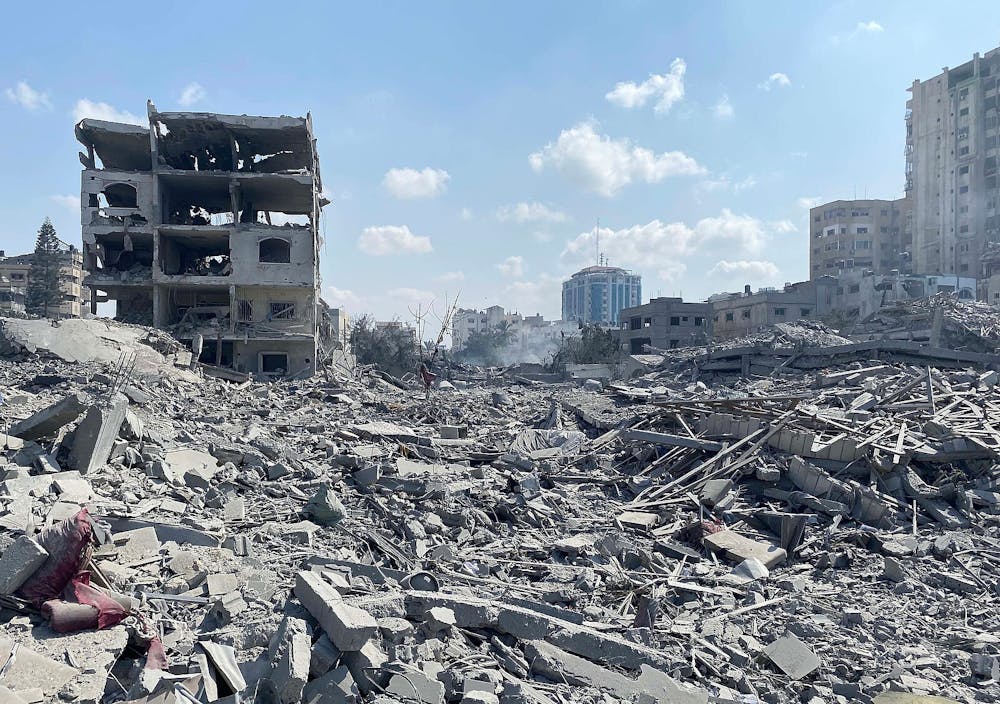By Janjabill Tahsin
Staff Writer
Mediation efforts led by Qatar, the U.S. and Egypt are zeroing in on a ceasefire with the possibility of an exchange of Israeli hostages — starting with civilians and ending with soldiers — for a cessation of hostilities, the release of Palestinian prisoners and the allowance of more aid into Gaza. However, due to the two sides’ opposing viewpoints on how to bring a permanent end to the Gaza war, the framework agreement is being delayed, according to CNBC and Reuters.
While Israel has proposed up to a two-month pause in fighting — the longest period of ceasefire Israel has offered Hamas since the war began on Oct. 7 — for the more than 130 hostages being held captive in the Gaza Strip by Hamas militants, Hamas officials have so far maintained their stance on achieving a permanent ceasefire, full Israel Defense Forces withdrawal from the Gaza Strip and additional Palestinian prisoner releases, according to CNBC.
Hamas is also seeking assurances from Qatar, the U.S. and Egypt that Israel will not restart the conflict. Even if Israeli soldiers remain captive, the group is concerned that Israel will resume fighting in Gaza once Hamas releases the remaining civilian hostages.
Rather than negotiate one stage at a time, as Israel has desired, until an agreement is reached for a permanent ceasefire, Hamas will not free the hostages during the first wave of the phased release, where “fighting would stop to allow for the remaining women, elderly and wounded hostages to be released by Hamas,” as stated by PBS. Israel and Hamas have yet to work out the details for a second phase, in which Israeli soldiers and civilian men would be released as well as allow more humanitarian aid into the Gaza Strip.
Sami Abu Zuhri, the senior spokesperson for Hamas, told Reuters that no deal was in place yet but that they were open to discussing ideas.
“We are open to all initiatives and proposals, but any agreement must be based on ending the aggression and the occupation’s complete pullout from [the] Gaza Strip,” said Abu Zuhri.
Israel tried to accommodate Hamas' conditions, but with little success.
While Israel's offensive in Gaza has destroyed most of the coastal enclave, injuring more than 63,740 and killing at least 25,700 people, it has yet to eliminate Hamas’ senior leadership or its capacity to fight. Netanyahu has been receiving increasing pressure from members of his war cabinet and the hostages’ families to reach a deal.
On Jan. 22, Israel Defense Forces were preparing explosives to detonate two buildings near the Maghazi refugee camp and the Israeli border when a blast, set off by a Palestinian militant, “fired a rocket-propelled grenade at a tank nearby,” killing 21 Israeli troops, according to PBS. The buildings then collapsed on the soldiers. Three additional deaths unrelated to the attack were also recorded, making it the most deadly single attack on Israeli forces.
In addition, at the beginning of January, South Africa formally accused Israel of committing genocide against Palestinians. Israel, however, denied the claim and accused Pretoria, the capital of South Africa, of providing Hamas with political cover.
South Africa then took the case to the International Court of Justice, requesting that Israel “immediately suspend its military operations in and against Gaza.”
The International Court of Justice issued its ruling Friday and ordered Israel to “take all measures within its power to prevent and punish the direct and public incitement to commit genocide in relation to members of the Palestinian group in the Gaza Strip.” The ICJ requested that Israel give a report to the Court within a month to detail all measures taken.







